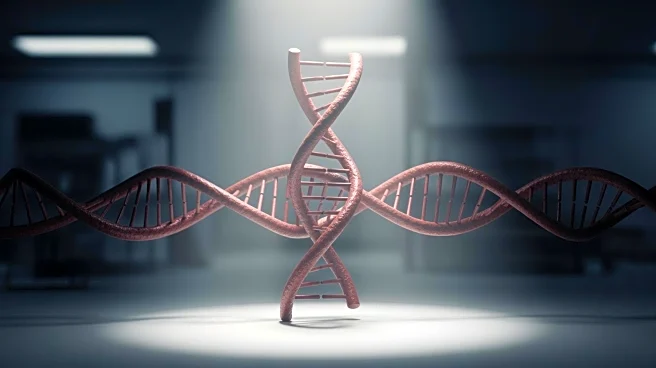What's Happening?
James D. Watson, the renowned American scientist and Nobel laureate, passed away at the age of 97 in East Northport, New York. Watson, alongside Francis Crick, was instrumental in discovering the double
helix structure of DNA, a breakthrough that revolutionized the field of biology and had far-reaching implications across various scientific disciplines. Despite his significant contributions to science, Watson's later years were marred by controversy due to his remarks on race and gender, which were widely condemned as racist and sexist. These comments led to his professional ostracization, including losing his position at Cold Spring Harbor Laboratory, a leading genetics research institution he helped elevate. Watson's career spanned seven decades, during which he played a pivotal role in the Human Genome Project and contributed to the rise of the biotechnology industry.
Why It's Important?
James Watson's contributions to science, particularly the discovery of the DNA double helix, have had a profound impact on numerous fields, including medicine, agriculture, and forensic science. His work laid the foundation for advancements in genetic testing, gene therapy, and biotechnology, which continue to shape modern scientific research and applications. However, Watson's controversial statements on race and gender highlight ongoing ethical debates within the scientific community regarding the intersection of personal beliefs and professional conduct. His legacy serves as a reminder of the importance of maintaining ethical standards in scientific discourse and the potential consequences of failing to do so.
What's Next?
Following Watson's death, the scientific community may reflect on his contributions and controversies, potentially sparking discussions on the ethical responsibilities of scientists. Institutions like Cold Spring Harbor Laboratory may continue to distance themselves from Watson's controversial views while acknowledging his scientific achievements. The broader implications of Watson's remarks could lead to renewed efforts to address diversity and inclusion within the scientific community, ensuring that future generations of scientists uphold ethical standards and contribute positively to society.
Beyond the Headlines
Watson's life and career underscore the complex relationship between scientific achievement and personal conduct. His story raises questions about how the scientific community should handle the legacies of influential figures whose personal views conflict with contemporary ethical standards. The controversy surrounding Watson may prompt further examination of how scientific institutions can balance recognizing significant contributions with addressing problematic aspects of a scientist's legacy.










